Coronavirus: Anger across states as protests fly in face of COVID-19 rules
Premiers face a growing backlash over COVID restrictions after allowing tens of thousands to attend Black Lives Matter rallies.
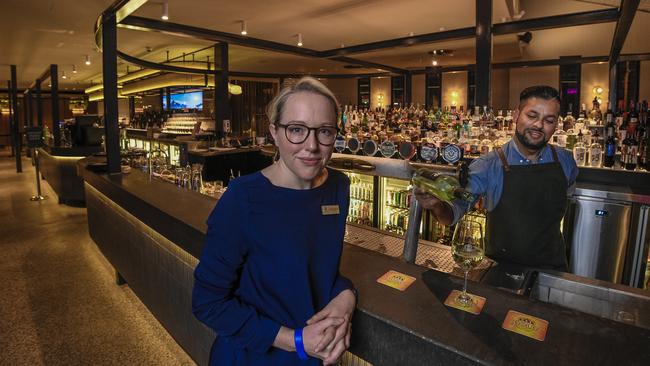
Premiers are facing a growing backlash over COVID-19 social-distancing restrictions after allowing tens of thousands of protesters to defy health warnings and attend Black Lives Matter rallies in major cities at the weekend.
As senior health officials warned they were “on alert’’ for a new spike in COVID-19 infections which could slow the reopening of the economy, politicians, community leaders and business figures condemned the protests for undermining support for coronavirus restrictions.
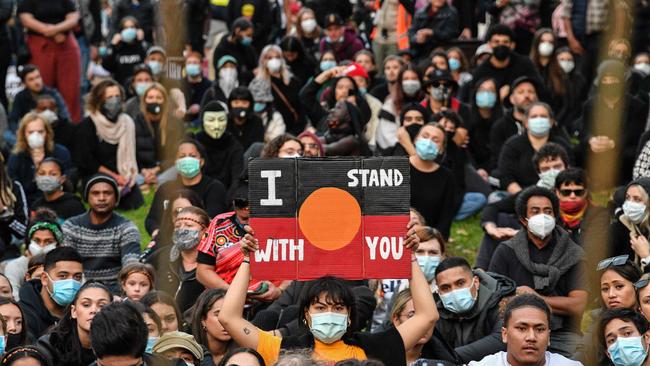
Chief medical officers will discuss the threat of new COVID-19 outbreaks as a result of the rallies and delays in easing social restrictions when the Australian Health Protection Principal Committee, led by Chief Medical Officer Brendan Murphy, meets on Monday. It will consider updated advice to national cabinet on its three-stage COVID-19 economic road map.
Former Liberal premier Jeff Kennett said he shared the concerns of protesters about indigenous incarceration rates.
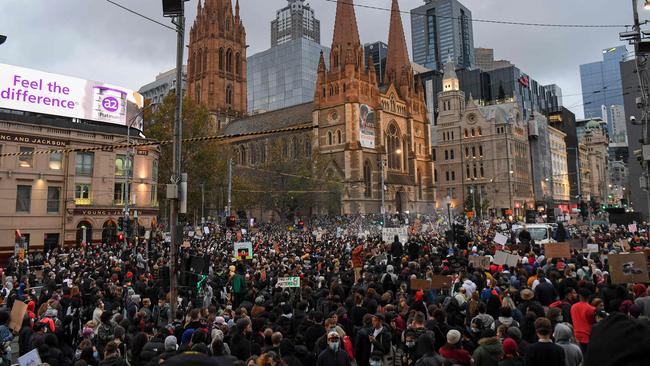
“It’s disappointing that those who lead us weren’t more forthright in trying to suggest to these people that they shouldn’t attend,” said Mr Kennett, who is president of AFL club Hawthorn.
“Don’t tell me after thousands of people attended the rally, we couldn’t have had thousands of people at the footy on the weekend social distancing.
“We need to open up the borders. We need to start moving.”
Anna Hurley, who manages the Marion Hotel, said she “would hate the right to protest to be quashed” but if medical evidence allowed the demonstrations to proceed why did COVID-19 -restrictions continue to stifle business? “The difference between the restrictions that are being placed on us at the moment and what happened on Saturday seem quite stark,” Ms Hurley said.
“I think we have been too slow to open back up given what’s happening in other states and given what happened on Saturday.”
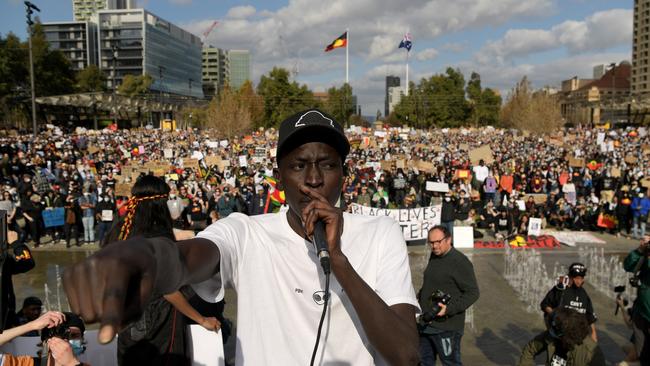
Her father, Peter Hurley, the managing director of the Hurley Hotel Group, one of South Australia’s largest hospitality groups, said he was “bemused” that thousands of people were allowed to march through Victoria Square in Adelaide on Saturday but in one of his hotels with a capacity of 800 only 20 were allowed in one room.
Mr Hurley said although many of the group’s 700 staff were back at work, 500 had to apply for the JobKeeper wage subsidy while 200 did not qualify and had to “queue up for JobSeeker”.
Finance Minister Mathias Cormann on Sunday condemned the actions of the protesters as “reckless and irresponsible”.
“How do we say to a businessman that he is not allowed to open in order to help us slow down or suppress the spread of the virus, but we are going to have tens of thousands of people gather like they have on the east coast? There is a complete and utter double standard here,” Senator Cormann said.
“If it is good enough to impose restrictions on everyday Australians in their daily lives, in their jobs, across the economy, then it has to be good enough in these circumstances that we have witnessed in the last few days.”
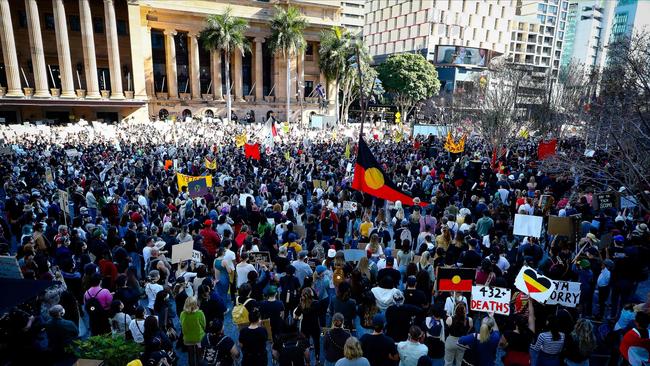
Australia’s Deputy Chief Medical Officer, Paul Kelly, urged BLM protesters to undergo COVID-19 tests if they contract symptoms. “Get a test as soon as possible so that we can … start the process of contact-tracing to try and decrease any outbreak that may occur,” Professor Kelly said.
Ahead of national cabinet meeting on Friday to discuss the next steps in accelerating economic activity, Professor Kelly said the AHPPC would be closely monitoring any new protest-related COVID-19 infections across the next two weeks.
Professor Kelly said they were “on alert” and conceded if coronavirus cases developed in the next fortnight, it may cause some states to reconsider easing restrictions.
“The most important thing would be if there were cases, community-acquired cases not otherwise linked to known clusters occurring in the next week or two, and then as we investigate those cases, we find they were at the protest,” he said.
“That would be a game changer. But at the moment, all we have is mass gatherings, we don’t know if anyone in those mass gatherings were infected or infectious, and so it’s a wait-and-see approach.”
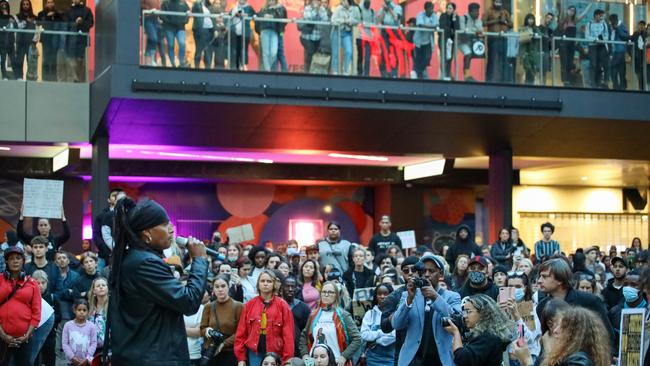
Deputy Prime Minister Michael McCormack said the BLM protests were not worth the risk and urged Australians to think carefully about their actions.
“When you talk to a lot of people about the fact they haven’t been able to attend family weddings, they haven’t been able to go to funerals, and then you have a group of people who want to protest about something that’s happening in America I can understand why many Australians are upset that one group has marched,” Mr McCormack said.
Deputy Labor Leader Richard Marles — who had urged protesters to stay at home on Friday — attacked Senator Cormann’s criticism of the BLM protests as “tone deaf”.
Mr Marles rejected suggestions the demonstrations were “imported” from the US following the police killing of George Floyd in Minneapolis.
“We’ve got a major issue in this country. To suggest that this is something which is imported, is patently ridiculous. And to say to those who are standing up against it and to do something about it, that this is an act of selfishness and indulgence, is wrong.”
Chris Rodwell, the chief executive of the Chamber of Commerce and Industry WA, said businesses and the community had made “extraordinary sacrifices” to protect the health of Australians and especially the most vulnerable.
“Many Australians including the business community, rightly support the struggle of indigenous peoples in Australia and are committed to reconciliation. It is concerning though to see vital health and safety measures now being disregarded,” he said.
Former Cairns mayor Kevin Byrne, who heads the recently formed Cairns Tourism Industry Association and business advocacy group Enterprise North, said the government was sending a poor message to businesses.
“We cannot understand that one moment the state can argue to keep the borders shut down because there’s a great risk, and then when a whole bunch of people want to have a protest, they don’t even object to the protest,” he said.
“They’re treating us like idiots.”
Additional reporting: Joe Kelly, Paul Garvey, Charlie Peel, Angelica Snowdon




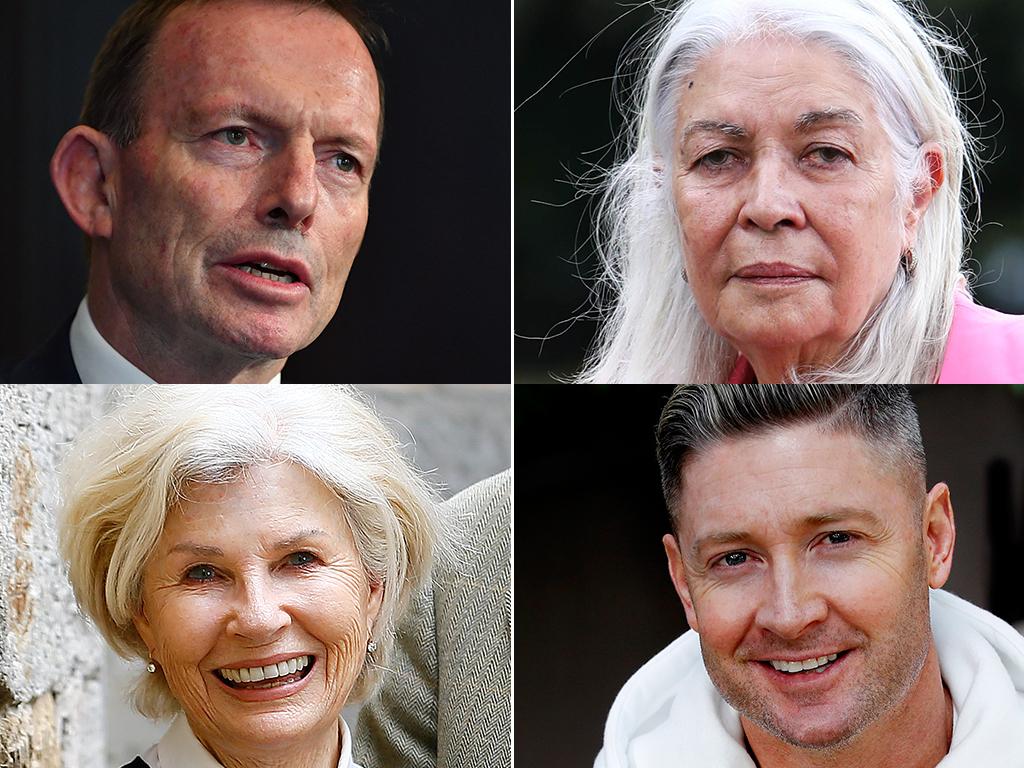


To join the conversation, please log in. Don't have an account? Register
Join the conversation, you are commenting as Logout